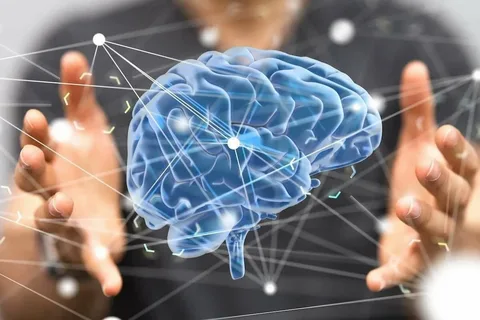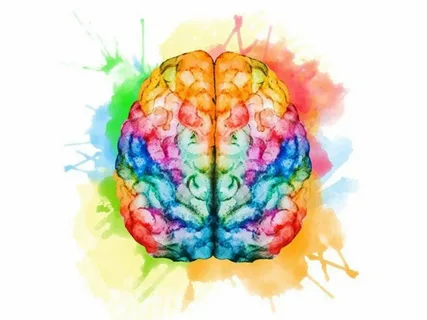Introduction
The human psyche is an enigmatic frontier, fraught with complexities and subtle nuances that define our experiences and behaviors. Psychological mapping techniques stand at the vanguard of efforts to decode this intangible landscape, offering fascinating insights into the cognitive processes that drive our decisions, shape our emotions, and influence our social interactions.
This article delves into the myriad of methods researchers employ to chart the contours of the mind, advancing our understanding of mental health disorders, enhancing learning outcomes, and tailoring personalized therapeutic strategies. As we navigate through this exploration, we will uncover the intricate paths woven by thoughts and feelings, illuminating the nuanced interplay between the conscious and subconscious realms.

The Fundamentals of Psychological Mapping
Psychological mapping refers to a variety of methodologies used to visualize and understand the terrain of the human mind. It encompasses the conceptual and practical tools designed to elucidate the intricate patterns of human cognition, affect, and behavior. This field intertwines elements from psychology, neuroscience, and data science to create literal or figurative maps indicating how mental processes are organized and interconnected within the brain.
History and Evolution
The development of psychological mapping has followed a trajectory that mirrors advances in both technology and theoretical understanding. From the early days of phrenology, where it was believed that bumps on the skull could indicate personality traits, to the contemporary use of neuroimaging and psychometrics, the field has evolved significantly. The 20th century marked substantial progress with the advent of cognitive psychology and the computational metaphor of the mind, allowing for more sophisticated models and techniques.
Key Concepts
At the core of psychological mapping are several essential concepts that govern its application:
Cognition: This encompasses mental processes involved in gaining knowledge and understanding through thought, experience, and the senses.
Perception: This refers to the way we interpret sensory information and the subsequent representation of the world around us.
Emotional Processing: This involves how we interpret and respond to emotions, including the identification, evaluation, and regulation of both our feelings and those of others.
These concepts form the bedrock upon which psychological mapping is built, providing the framework for investigating the profound intricacies of the human mind.
Major Psychological Mapping Techniques
In this section, we examine the principal methodologies within psychological mapping, focusing on Cognitive Mapping, Behavioral Mapping, and Emotional Mapping—their definitions, applications, key entities, methodologies, and relevance to other areas within psychology.
Cognitive Mapping
Cognitive mapping is a powerful tool that allows researchers and clinicians to visualize and decipher the intricate web of thought processes within the brain. It represents an individual’s mental model and conceptualization of their physical and conceptual environment. This technique enables exploration of how people perceive their world, navigate through physical space, and construct inner schemas of external realities.
Key Entities
- Memory: Cognitive mapping entwines closely with memory, as individuals use recollection to construct and adjust their cognitive maps.
- Spatial Awareness: Spatial orientation and the ability to navigate through various environments play a vital role in forming cognitive maps.
- Decision-Making: Cognitive maps are instrumental in assessing possible routes and strategies, significantly influencing decision-making processes.
Behavioral Mapping
Behavioral mapping falls under the observational research methods used to study the interactions between individuals and their environments. By methodically recording behaviors about physical spaces, it often employs visual symbol-based references on a map to pinpoint where activities occur, allowing for patterns of behavior to be analyzed over time.
Relevance
- Behavioral Psychology: Behavioral mapping sheds light on the frequency, duration, and nature of specific actions, providing insight into behavioral conditioning and change.
- Environmental Psychology: It highlights how physical spaces can influence behaviors and is crucial for designing environments that promote positive interactions and outcomes.
Emotional Mapping
The concept of emotional mapping refers to the practice of illustrating and interpreting the vast spectrum of human emotions. It is concerned with recognizing the physiological, psychological, and social dimensions of emotions as they are experienced across different situations and stimuli.
Application in Therapy
- Mapping is employed in therapeutic settings to help clients visualize and understand their emotional responses, leading to better emotional regulation skills and the development of emotional intelligence. It also plays a critical role in evaluating the impact of environments on emotional well-being, reinforcing its utility in broader psychological applications.
Technological Advances in Psychological Mapping
The evolution of psychological mapping has been significantly propelled by technological breakthroughs. Modern tools and techniques allow for a more nuanced understanding of the mind’s landscape, with brain imaging and artificial intelligence being at the forefront of these advancements.

Brain Imaging Techniques
Advanced brain imaging technologies such as functional magnetic resonance imaging and positron emission tomography scans have revolutionized our ability to visualize and understand brain activity. These techniques have provided unprecedented insights into the regions of the brain associated with cognitive functions and emotional responses, underpinning much of today’s psychological mapping efforts. Through detailed imagery, researchers can observe how different areas of the brain activate during various tasks, offering clues into the complex neural pathways that govern behavior and mental processes.
Artificial Intelligence in Psychological Mapping
Artificial intelligence and machine learning offer powerful platforms to analyze the vast amounts of data generated by brain imaging and other psychological assessments. AI algorithms can detect patterns and predict outcomes with striking accuracy, offering the potential for revolutionary applications in personalized therapy and mental health diagnostics. The capacity of AI to process and interpret complex datasets extends the boundaries of psychological mapping, paving the way for more sophisticated models of the human mind. Moreover, AI technologies are being developed to simulate cognitive processes, providing an alternative avenue to dissect and comprehend intricate mental functions.
FAQs
What is the main purpose of psychological mapping?
The main purpose of psychological mapping is to explore and understand the various cognitive and emotional processes that shape human behavior. It aims to illustrate the relationship between an individual’s internal psychological states and their external environment.
How do brain imaging techniques like fMRI contribute to psychological mapping?
Functional magnetic resonance imaging helps to visualize and understand brain activity by measuring changes in blood flow, thereby providing insights into the neural correlates of cognitive functions and emotional responses. This contributes to a deeper understanding of the connections within the brain that relate to behavioral and mental processes.
Is artificial intelligence reliable in psychological mapping?
AI and machine learning are promising tools in psychological mapping because of their ability to process large datasets and identify complex patterns. While they offer substantial benefits in terms of analysis and prediction, the reliability of AI systems still depends on the quality of the data and the algorithms used.
Conclusion
Psychological mapping techniques are vital instruments in the quest to unlock the hidden corridors of the human mind. From defining the pathways of thought and behavior to illuminating the landscape of emotions, these methods provide invaluable insights that can enhance our understanding of mental health and personal development. The integration of advanced technologies, like brain imaging and AI, continues to refine these techniques, leading to innovative applications in clinical practice and beyond. As our capacity to decipher the complexities of cognitive processes and emotional patterns grows, we stand at the cusp of transforming psychological care for the better, ensuring a future where mental well-being is accessible and prioritized for all.




